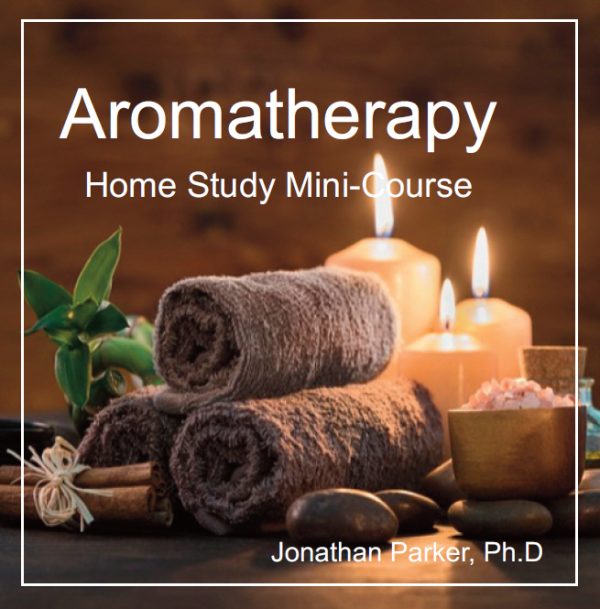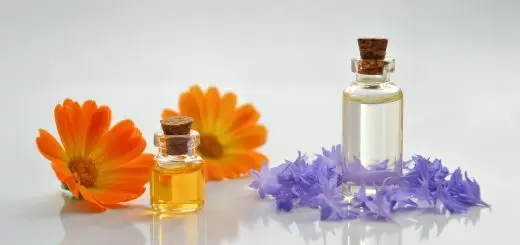How to Use Aromatherapy for Relaxation and Health

Looking for more amazing products? Check out our online store and explore our collection here! Happy shopping!
Before diving in, please note: This post is for informational purposes only. If you’d like to know more about how we approach topics, feel free to check out our friendly Disclaimer Page.
Hey there, amazing readers! 
We’re committed to delivering quality posts, and your support (even just sticking around despite the ads) means everything to us. So, bear with us, and thanks for helping us keep the good vibes rolling. Now, on to the fun stuff!
TRANSLATE BUTTON AT THE END OF THE ARTICLE
A Quick Overview
Aromatherapy has gained popularity as a natural way to promote relaxation and enhance health.
By harnessing the power of essential oils, many people find relief from stress, anxiety, and various physical ailments.
Whether you’re looking for a calming atmosphere after a long day or want to boost your overall well-being, aromatherapy offers a delightful path to achieving those goals.
In this article, we’ll explore how to use aromatherapy effectively, discuss the benefits of essential oils, and provide practical tips for incorporating this fragrant practice into your daily life.
Discover the Basics: What is Aromatherapy?
Aromatherapy is the practice of using natural plant extracts, known as essential oils, to promote physical and emotional well-being.
These concentrated oils are derived from various parts of plants, including leaves, flowers, roots, and stems.
Each essential oil has its own unique scent and therapeutic properties.
The practice dates back thousands of years, with roots in ancient civilizations like Egypt, China, and Greece.
In modern times, aromatherapy has evolved, combining traditional wisdom with contemporary scientific understanding to create effective wellness practices.
Essentially, aromatherapy taps into the olfactory system, which is closely linked to our emotions and memories.
When we inhale these fragrances, they can influence our mood and physical health.
It’s like a gentle nudge to our mind, pushing aside stress and inviting in tranquility.
In practice, aromatherapy can be as simple as using a diffuser or as elaborate as a full spa treatment.
It’s flexible, too.
Whether you’re at home, work, or on the go, there are countless ways to incorporate it into your lifestyle.
The Science Behind Scents: How Aromatherapy Works
Have you ever noticed how a single whiff of lavender can transport you to a peaceful meadow?
That’s no accident.
Aromatherapy works through the olfactory system, where the brain processes scents and connects them to emotions and memories.
This connection is why certain scents can evoke feelings of calmness, happiness, or even nostalgia.
When you inhale essential oils, molecules travel through the nasal passages, stimulating the olfactory receptors.
These receptors send signals to the brain’s limbic system, which plays a crucial role in regulating emotions, memory, and even physiological responses.
This is why a soothing scent can lower stress levels, ease anxiety, and even improve overall health.
Scientific studies have shown that specific essential oils can affect heart rate, blood pressure, and stress hormones.
For instance, inhaling bergamot oil has been linked to reduced anxiety levels.
Meanwhile, eucalyptus can clear the airways and promote respiratory health.
So, not only do these oils smell fantastic, but they also have tangible benefits for our bodies.
Benefits of Aromatherapy for Mind and Body
Aromatherapy offers a plethora of benefits for both the mind and body.
Here are a few ways this fragrant practice can enhance our well-being:
Stress Reduction: Aromatherapy can help reduce cortisol levels, the body’s primary stress hormone.
Discover "Beginner's Guide to Essential Oils"

Scents like lavender and chamomile are particularly effective at promoting relaxation.
Improved Sleep Quality: Many people struggle with sleep issues.
Essential oils such as lavender and bergamot can create a calming atmosphere that fosters better sleep.
Enhanced Mood: Scents like citrus oils can elevate mood and promote feelings of happiness.
A few drops of lemon or orange oil in a diffuser can brighten your day.
Pain Relief: Certain oils, such as peppermint and eucalyptus, can help alleviate headaches, muscle pain, and other discomforts.
Boosted Immune System: Some essential oils have antimicrobial properties, helping to ward off illness.
Tea tree oil and eucalyptus are great additions to your home care routine.
Clearer Skin: Oils like tea tree and lavender can promote healthy skin by reducing acne and irritation.
Increased Focus: Rosemary and peppermint oils can enhance concentration and mental clarity, making them great companions during work or study sessions.
Emotional Healing: Aromatherapy can support emotional balance by fostering positive feelings and reducing symptoms of anxiety and depression.
Digestive Health: Oils like ginger and peppermint can aid digestion and relieve discomfort associated with indigestion.
Overall Relaxation: The soothing scents of essential oils can create a tranquil environment, helping us unwind after a long day.
Selecting Essential Oils for Relaxation and Health
Choosing the right essential oils can make all the difference in your aromatherapy experience.
It’s important to consider your personal preferences and specific health needs.
Here are some tips for selecting the right oils:
Identify Your Goals: Are you looking to reduce stress, improve sleep, or boost your mood?
Knowing your goals will help narrow down your options.
Research Properties: Each essential oil has unique benefits.
For example, lavender is renowned for its calming effects, while peppermint can invigorate and energize.
Trust Your Nose: Scents can evoke personal memories and feelings.
Choose oils that resonate with you and make you feel good.
Consider Allergies: If you have allergies or sensitivities, check ingredients carefully.
Some oils can cause skin irritation or allergic reactions.
Quality Matters: Look for pure, high-quality essential oils from reputable brands.
Avoid synthetic fragrances, as they don’t offer the same therapeutic benefits.
Experiment: Don’t be afraid to try different oils.
Mix and match to find the blends that work best for you.
Seek Guidance: If you’re unsure where to start, consult an aromatherapist or a knowledgeable sales associate for recommendations.
Blend for Balance: Sometimes, blending different oils can create a more balanced aroma and enhance the therapeutic effects.
Local Sourcing: Whenever possible, consider sourcing oils from local producers to support small businesses and ensure freshness.
Check for Certifications: Look for oils that are certified organic or have undergone third-party testing to ensure purity.
Top Essential Oils for Stress Relief and Calmness
When it comes to promoting relaxation and stress relief, certain essential oils stand out as favorites.
Here are some top contenders:
Lavender: Renowned for its calming properties, lavender oil is often used to ease anxiety and promote restful sleep.
Bergamot: This citrus oil has a refreshing scent that can uplift mood while simultaneously reducing stress.
Chamomile: With its sweet, apple-like fragrance, chamomile is excellent for relaxation and can help relieve insomnia.
Frankincense: Known for its grounding effect, frankincense can promote feelings of peace and calm.
Sandalwood: This woodsy scent is believed to have calming effects and is often used in meditation practices.
Ylang Ylang: This exotic flower oil can balance emotions and promote feelings of joy and relaxation.
Cedarwood: With its warm, woody aroma, cedarwood can help ground your thoughts and ease anxiety.
Rose: This luxurious oil can uplift the spirit and promote emotional healing.
Patchouli: Known for its earthy scent, patchouli can help calm the mind and promote relaxation.
Jasmine: This sweet floral scent is often associated with love and can help lift the mood while easing stress.
Different Methods: How to Use Aromatherapy Effectively
Aromatherapy can be used in various ways.
Here are some effective methods to incorporate essential oils into your routine:
Diffusion: Using an essential oil diffuser is one of the simplest ways to fill your space with soothing scents.
Just add water and a few drops of your chosen oil.
Inhalation: For immediate relief, inhale essential oil directly from the bottle or place a few drops on a cotton ball and breathe in deeply.
Topical Application: Dilute essential oils in a carrier oil (like coconut or jojoba oil) before applying to the skin.
This method is great for massage or targeting specific areas of discomfort.
Bathing: Adding a few drops of essential oil to your bathwater can create a relaxing soak.
Just remember to mix it with a carrier oil to avoid skin irritation.
Potpourri: Create a homemade potpourri by combining dried herbs and a few drops of essential oil.
Place it in a decorative bowl to scent your space.
Candles: Look for candles made with essential oils.
These can add a lovely aroma while providing a cozy atmosphere.
Inhalers: Aromatherapy inhalers are small tubes filled with essential oils that you can carry with you for on-the-go relief.
Steam Inhalation: For respiratory issues, add a few drops of essential oil to a bowl of hot water, cover your head with a towel, and inhale the steam.
Scented Sachets: Fill small bags with dried herbs and a few drops of essential oil.
Place them in drawers or closets for fresh scents.
Aromatherapy Jewelry: Some jewelry is designed to hold essential oils, allowing you to carry your favorite scents with you throughout the day.
Creating Your Own Relaxing Aroma Diffuser Blends
Creating your own essential oil blends can be a fun and rewarding process.
Here’s how to start:
Base Notes: Begin with a base note.
These oils tend to be heavier and longer-lasting.
Examples include sandalwood or cedarwood.
Middle Notes: Add middle notes for balance.
These oils create the heart of your blend.
Lavender and chamomile work well here.
Top Notes: Finally, finish with top notes, which provide the initial scent.
Citrus oils like bergamot or lemon are great choices.
Start Small: Begin with a small batch to test your blend.
A typical ratio is 3:5:2 (base:middle:top).
Mix and Match: Experiment with different combinations until you find the scent that resonates with you.
Record Your Blends: Keep a journal of your blends to remember what works best for you.
Consider Mood and Occasion: Tailor your blends to fit different moods or occasions, such as energizing blends for mornings or calming blends for evenings.
Test and Adjust: Don’t hesitate to adjust your blends over time as your preferences change.
Store Properly: Keep your blends in dark glass bottles to preserve their potency.
Share with Friends: Once you find a blend you love, share it with friends!
It can be a lovely bonding experience.
Incorporating Aromatherapy into Your Daily Routine
Making aromatherapy a part of your daily routine can enhance your overall well-being.
Here are some practical tips:
Morning Ritual: Diffuse uplifting oils like citrus or peppermint while you go about your morning routine to kickstart your day.
Workplace Wellness: Use an essential oil inhaler or a diffuser at your desk to create a calm, focused environment.
Mindful Moments: Take a few moments throughout the day to pause, breathe, and inhale your favorite essential oil.
It’s a great way to reset and recharge.
Evening Wind Down: Create a relaxing atmosphere with calming scents during your evening routine.
This prepares your mind and body for sleep.
Family Bonding: Involve family members in the process.
Create blends together or have a family spa night with soothing baths.
Travel Companion: Bring along essential oils when you travel.
They can help alleviate stress, nausea, or jet lag.
Fitness Boost: Apply invigorating oils like peppermint before workouts for an energizing boost.
Meditation Support: Use essential oils like frankincense or sandalwood during meditation to deepen your practice.
Mindful Cleaning: Incorporate essential oils into your cleaning routine for a fresh scent and added antimicrobial benefits.
Cooking with Oils: Some essential oils like lemon and basil can be used in cooking.
Just ensure they are food-grade and safe for consumption.
DIY Aromatherapy Bath: Soak Away Your Worries
Taking a DIY aromatherapy bath can be a luxurious and soothing experience.
Here’s how to create the perfect bath:
Gather Ingredients: You’ll need essential oils, a carrier oil (like coconut or almond), Epsom salt, and a warm bath.
Mix Your Oils: In a small bowl, combine about 5-10 drops of your chosen essential oils with a tablespoon of carrier oil.
This helps disperse the oils in the water.
Add Epsom Salt: Mix in half a cup of Epsom salt to the bowl.
Epsom salt can help soothe sore muscles and enhance relaxation.
Prepare the Bath: Fill your tub with warm water, but not too hot.
Add the oil-salt mixture while the water is running to help it disperse evenly.
Light Some Candles: Set the mood by lighting candles and dimming the lights.
Maybe play some soft music or nature sounds.
Soak and Relax: Slip into your bath and take deep breaths, focusing on the soothing scents.
Let your worries float away.
Hydrate: Keep a glass of water nearby to stay hydrated while you soak.
Post-Bath Care: After soaking, gently pat your skin dry and consider applying a moisturizing lotion infused with essential oils.
Enjoy Regularly: Make this a regular self-care routine, perhaps once a week, to unwind and rejuvenate.
Share the Experience: Invite a friend for a spa day!
You can both benefit from the calming effects.
Aromatherapy for Better Sleep: Tips and Tricks
Getting a good night’s sleep can sometimes feel elusive.
Aromatherapy can help establish a soothing bedtime routine.
Here are some strategies:
Create a Sleep Sanctuary: Transform your bedroom into a peaceful haven.
Use calming colors and eliminate clutter.
Use a Diffuser: Place a diffuser by your bedside and fill it with sleep-promoting oils like lavender or bergamot.
Incorporate a Pillow Spray: Mix distilled water with a few drops of essential oils in a spray bottle.
Lightly mist your pillow before going to sleep.
Develop a Routine: Establish a calming bedtime routine.
This can include reading, meditation, or gentle stretches combined with aromatherapy.
Limit Screen Time: Put away electronic devices at least an hour before bed.
This helps create a more restful environment.
Calming Tea: Enjoy a cup of herbal tea infused with relaxing herbs like chamomile as part of your routine.
Mindful Breathing: Before sleep, take a few minutes to practice mindful breathing.
Inhale the scent of your chosen essential oil deeply.
Warm Bath: Consider taking a warm bath with calming essential oils before bed to signal to your body that it’s time to wind down.
Avoid Stimulants: Stay away from caffeine and heavy meals before bedtime to improve sleep quality.
Experiment with Blends: Create a sleep blend that works for you.
Some combinations include lavender with chamomile or sandalwood with ylang ylang.
Safety First: Using Essential Oils Responsibly
While aromatherapy can be incredibly beneficial, it’s important to use essential oils safely.
Here are some essential tips:
Dilution Matters: Always dilute essential oils with a carrier oil before applying them to the skin to avoid irritation.
Patch Test: Conduct a patch test on a small area of skin before using a new oil.
This can help identify any sensitivities.
Consult a Professional: If you’re pregnant, breastfeeding, or have existing health conditions, consult a healthcare provider before using essential oils.
Keep Away from Eyes: Avoid contact with your eyes and mucous membranes.
Rinse with a carrier oil if contact occurs.
Child Safety: Keep essential oils out of reach of children and consult pediatric guidelines regarding their use.
Avoid Ingestion: Unless specifically labeled as safe for consumption, avoid ingesting essential oils.
Storage: Store essential oils in dark glass bottles away from heat and light to preserve their potency.
Quality Over Quantity: Select high-quality, pure essential oils from reputable sources.
Avoid synthetic fragrances and diluted oils.
Educate Yourself: Familiarize yourself with the properties of the oils you use.
Some oils are photosensitive and can cause skin reactions when exposed to sunlight.
Stay Informed: Keep up with the latest research and guidelines on essential oil safety to ensure a positive experience.
Embrace Aromatherapy: A Path to Wellness and Joy
Aromatherapy offers a delightful escape from the stresses of daily life while providing numerous health benefits.
By integrating essential oils into our routines, we can cultivate a sense of calm and balance in our lives.
Whether you’re diffusing scents, enjoying a relaxing bath, or creating your own blends, the benefits are immense.
So why not give it a try?
Embrace the fragrant journey and explore the scents that bring you joy.
Your mind and body will thank you for the indulgence.
By understanding the principles of aromatherapy and applying practical tips, you can make this holistic practice a vibrant part of your life.
Let’s take a moment to breathe deeply, enjoy the gifts of nature, and create our own aromatic adventures.
Conclusion
Aromatherapy is more than just a pleasant scent; it’s a powerful tool for enhancing our well-being.
By understanding the basics, exploring the science behind scents, and selecting the right essential oils, we can make aromatherapy an integral part of our lives.
From stress relief to improved sleep and emotional healing, the benefits are as diverse as the oils themselves.
So, let’s dive into the world of essential oils!
Experiment with different methods, create your own blends, and incorporate this delightful practice into your daily routine.
Remember to prioritize safety and choose high-quality oils.
Embrace the fragrant journey toward relaxation and health, and enjoy the profound effects that aromatherapy can bring to your life.
You deserve it!

The Enlightenment Journey is a remarkable collection of writings authored by a distinguished group of experts in the fields of spirituality, new age, and esoteric knowledge.
This anthology features a diverse assembly of well-experienced authors who bring their profound insights and credible perspectives to the forefront.
Each contributor possesses a wealth of knowledge and wisdom, making them authorities in their respective domains.
Together, they offer readers a transformative journey into the realms of spiritual growth, self-discovery, and esoteric enlightenment.
The Enlightenment Journey is a testament to the collective expertise of these luminaries, providing readers with a rich tapestry of ideas and information to illuminate their spiritual path.
Our Diverse Expertise
While our primary focus is on spirituality and esotericism, we are equally passionate about exploring a wide range of other topics and niches 

To ensure we provide the most accurate and valuable insights, we collaborate with trusted experts in their respective domains 
Our blog originally focused on spirituality and metaphysics, but we’ve since expanded to cover a wide range of niches. Don’t worry—we continue to publish a lot of articles on spirituality! Frequently visit our blog to explore our diverse content and stay tuned for more insightful reads.
Hey there, amazing reader! 
Check out our store here and take a peek at some of our featured products below! Thanks for being awesome!
Beginner's Guide to Essential Oils
Dive into the world of essential oils with this easy-to-follow guide! Perfect for anyone starting their journey, this e-book reveals how to use essential oils safely and effectively to enhance your well-being.
Inside, you'll learn:
- The top essential oils for relaxation, focus, and energy.
- Simple DIY recipes for blends, diffusers, and skincare.
- Tips on choosing high-quality oils and proper usage.
Discover the natural way to elevate your mind, body, and home.
Start your essential oil journey today!














